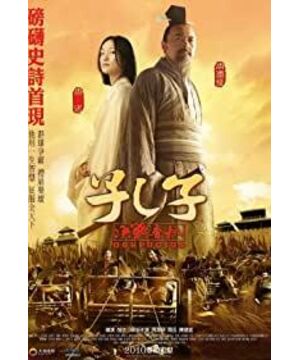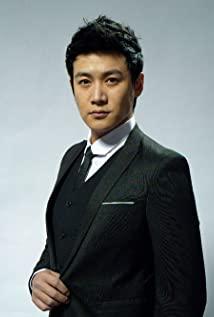Searching for classic Western biopics, we will find that artists have made the most films, writers such as Wilde, painters such as Frida, musicians such as Mozart, singers such as I am not there, almost all great artists have been shown in movies. This is because it is easier for an artist to act and perform. In addition, politicians, scientists, athletes and other celebrities in various fields, almost no category has not been filmed, even Jesus has been the protagonist several times. The only empty space is that of thinkers and philosophers. Plato, Socrates, Aristotle, these great Western philosophers have almost never appeared on the screen. If you want to ask the reason, it is simply because it is difficult to express something as ethereal as "thought" on the screen. Even if it is deliberately performed, it will not meet the standards of the film and constitute a flaw in the plot.
But we actually have "Confucius". I didn't expect that Chinese films finally took the lead. Before watching the film, we should pay tribute to director Hu Mei - at least the courage is commendable. Confucius is difficult to photograph. In addition to his poor expression of his thoughts and the lack of concise records in ancient books, the biggest obstacle is the pressure of public opinion. Just think, a few years ago, when the scholar Li Ling said in his research monograph that Confucius was "a dog who lost his family", he caused countless infamy, not to mention popular movies. If you want to shoot the "sage" strictly according to history, the audience will find it boring and preaching; you want to "humanize" Confucius, and you will inevitably be accused of distorting the image of the saint. In China, Confucius has long surpassed the image of a mere scholar, and has become an abstract symbol of a country, wrapped in various ideologies. It is undoubtedly extremely difficult to let everyone see the image of a real "person" through a movie. As a director of Confucius, Hu Mei must be under a lot of pressure.
Sure enough, from before its release until now, there have been far more scoldings than affirmations surrounding the film. Apart from the dissatisfaction of some of the audiences attracted by the "forced" "Avatar" offline, the content of the movie really has too many deficiencies. For example, where is the "thought" of Confucius? In order to create a blockbuster battle, the film sets the core plot to be political and war dramas such as Falling Three Capitals, Jiagu Huimeng, and Chen Cai being surrounded. No matter how heroic and beautiful this plot is, what does it have to do with Confucius' philosophical thought? As for how he taught, how he traveled around the world to persuade kings, and how he wrote books and talked about it, the movies all passed by. The thoughts of Confucius that we feel are just words from the Analects that pop out from his mouth from time to time. These "quotations" are spoken in a mixed manner of text and white. The context is abrupt and blunt, without contagion. Filming Confucius is inherently risky, deliberately copying the blockbuster model, causing the film to be cluttered and out of focus, and it can only lead to a dead end.
The so-called tear-jerking points are just exaggerated words by the propagandists. The emotional climax of the whole film is the part where Yan Hui sacrificed his life to save the bamboo slips. But this scene not only has the suspicion of overpowering the guest, but also the sensational method looks very cheap. To be contagious, devotion alone is useless, but also with personality charm as a foreshadowing. As the most inked disciple, Yan Hui's face is still blurred in the film, and all his performances before his death are just a "bitter face" to accompany the master by his side, without any subjective initiative and character flashpoints. Yan Hui is still like this, not to mention the other disciples, all of them are like extras.
It can be seen that Hu Mei still tried her best to make dramatic efforts, but as a result, Confucius was not reduced to a mortal person, and his moral and academic appeal was not enough. When Hu Mei was filming, although she did not enjoy the treatment of being supervised by the descendants of Confucius like Mei Baojiu supervised Chen Kaige, she could not be at all relaxed, because the supervisors had been replaced by all the general public who had been educated by Confucius. When making biopics in China, one must face the "paper shackles" in "Mei Lanfang". Therefore, almost all biopics in China will eventually become theme films.
"Confucius" is not without its sincere admiration. One is Fa Ge's acting skills, and all the doubts about him have now died down; the other is Faye Wong's theme song "Orchid Exercise". How many viewers have endured drowsiness for too long, and then the drowsiness disappeared at the end of the play, immersed in the sound of the goddess of the king and reluctant to leave for a long time.
View more about Confucius reviews










